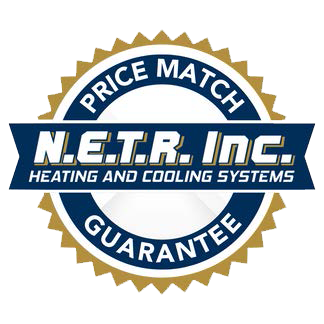Check out some useful AC troubleshooting tips. Find out what to do if your residential or commercial AC system isn’t working properly.
When your residential or commercial air conditioner isn’t working correctly, you may need to contact an HVAC professional. But before reaching for the phone, consider working through a few troubleshooting steps. The following tips can help to remedy a number of common HVAC issues.
1. Check Your Thermostat
If warm air is coming through the vents or air handling units, check to make sure your thermostat is set to cooling and not to heating. If the setting is okay, you can work through some of the other HVAC troubleshooting tips or call a professional. Similarly, if your heating or air conditioning doesn’t cycle on, the problem may be with your thermostat.
To ensure your thermostat is working correctly, turn it on, and set the temperature slightly higher than the outside temp. Then, see if your system comes on. If not, you may need to invest in a new thermostat. If that doesn’t correct the situation, your equipment may need a repair.
You can check to see whether or not the thermostat is correctly sensing the temperature in your home or office by measuring indoor temperatures with a standalone thermometer. If the temp on the thermometer doesn’t match the temp on the thermostat, you need a professional to recalibrate your thermostat or potentially install a new one.
If you get a new thermostat, make sure to upgrade to a programmable option. That can save you money on heating and cooling bills by allowing you to program settings in advance, rather than relying on manually turning the system up or down.
2. Look at Your Circuit Breakers
When electrical circuits get overloaded, they automatically turn off or break the circuit. If your HVAC system isn’t responsive, look at the circuit breakers to see if they have tripped. These are usually located in a utility room or garage of most homes, and the various switches should be labeled.
If the circuit is off, turn it back on and try to run your HVAC system. If everything works correctly, just enjoy your comfortable home. However, if the circuit breaker flips back to ‘off’ as soon as you fire up your system, contact a residential or commercial HVAC specialist — you may have a serious problem with your HVAC equipment or with your electrical system.
3. Replace Dirty Air Filters
Ideally, you should replace the air filters on your HVAC system on a regular basis as part of your seasonal HVAC maintenance, but if you haven’t changed the filter in a while, you may notice a variety of issues with your HVAC system including the following:
- Reduced air flow coming through vents
- Uneven cooling in your home or business
- Unexplained increases in your energy bill
- Icy buildup on refrigerant lines or the evaporator coil
- Water overflowing from condensate pans
- AC not cycling on
4. Clear Vents
Many of the above issues can also be remedied by clearing your air vents. After changing your filter or making sure that it’s clean, look at your vents. Are they blocked by furniture, window treatments, or commercial equipment? If so, move those items away from the vents so that they can easily deliver cool air into your space.
In some cases, you may need to remove and clean the grilles over the vents. You can also vacuum out as much of the ductwork as you can reach. Keep in mind that ductwork can harbor all kinds of dust and debris, and occasionally, you may need to have your ducts professionally cleaned. Additionally, ducts also develop cracks or poor bonds over time. That decreases efficiency, requiring you to schedule a duct repair or invest in a ductless HVAC system.
5. Clean Off the Outdoor Unit
If your AC isn’t cooling your home or commercial building adequately, if you feel warm air coming from the vents, or if you have unusually high energy bills, you should check your outdoor unit. With most AC units, the outdoor unit houses your condenser which plays a large role in cooling your home. If you have a ductless HVAC system, the outdoor unit also houses a heat pump which handles both your heating and cooling.
In all cases, make sure the outdoor unit doesn’t have snow, ice, leaves, or debris built up on it. Also, cut away plants or anything growing on the unit. You can wash most outdoor HVAC units with a hose, and you may also want to vacuum up debris and scrub off sticky debris.
Worked through these AC troubleshooting tips? Still can’t figure out why your air conditioner isn’t working? Then, contact us for help. We can help you troubleshoot, repair, or replace HVAC equipment, and we also offer preventative maintenance to ensure your system runs efficiently and to help your home or business avoid unexpected repair issues.
